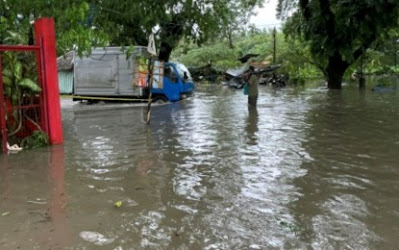Bacolod City Witnesses a 100% Surge in Leptospirosis Cases in 2023: Urgent Call for Proactive Measures
From January to mid-December this year, Bacolod City has experienced a 100% increase in leptospirosis cases compared to the same period in 2022. According to records from the City Health Office (CHO), there have been 88 reported cases, including 16 fatalities, marking a significant rise from the 44 cases reported in the previous year.
The most recent fatality, recorded earlier this month, involved a 38-year-old construction worker. Dr. Grace Tan, the head of CHO's Environment Sanitation Division, pointed out that delayed health-seeking behavior and denial of leptospirosis infection remain common factors contributing to complications and death. Between 70 and 80 percent of cases involve exposure or contact with contaminated water or ground, with the last patient succumbing to the illness being exposed to sewerage work.
Leptospirosis is a bacterial infection caused by the leptospira spirochetes bacteria, contracted through exposure to water or soil contaminated by the urine of infected animals, particularly rats. This typically occurs through cuts, wounds, abrasions, or any break in the skin.
Specific barangays expriencing multiple deaths include 14, Banago, and Pahanocoy, while single deaths were reported in Barangays 6, 23, Taculing, Handumanan, Villamonte, Bata, Granada, Singcang-Airport, Tangub, and Alijis.
The CHO issued an advisory urging the public to take leptospirosis prophylaxis promptly after exposure, wading, or contact with water, ground, or food possibly contaminated with leptospira in rat or animal urine. They emphasized the importance of consulting the nearest health center or a private physician for a prescription. The advisory also stressed the need for sanitation inspectors to closely coordinate with the city government to address floods, sewerage siphoning, and garbage management as part of a comprehensive approach to mitigate the risks associated with leptospirosis.









Komentar :
Post a Comment